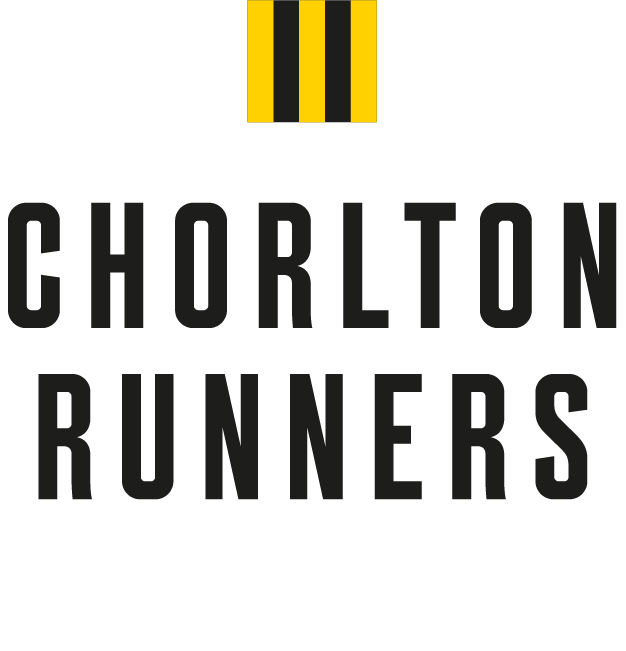marathon BLOG: Things don’t always go the way we planned….. by hannah greenlee
The dreaded DNF (Did not finish) and other disappointments
Continuing our series of blogs looking at marathon running, Hannah Greenlee, looks at what happens when things don’t go to plan…
“Coach Chris Rayner once told me he reckoned only about one in four marathons went well. Which means I must be due one soon! In the swell of marathon results that come in around April, it can be easy to forget that things don’t always go the way we planned. And this doesn’t just apply to marathons, though due to the distance and the level of preparation that go into them, this is perhaps where many of us come in to contact with the possibility of not finishing.
For clarity, I have had the worst happen more than once: I sprained an ankle on Wilmslow half in 2017 (a long hobble to the car), I DNF’d (Did Not Finished) an ultra in 2018 (probably lack of experience), I dropped out of a championship fell race in 2019 (the less said about why I was there in the first place, the better) and most recently I DNF’d the Brighton marathon. Between these races there have been PBs in the same distances, excellent results in more challenging races and some of the best and most dedicated training blocks I have ever done. A lot of people were very surprised when I pulled out of Brighton at mile 16: ‘You’d done so much training!’, ‘You had been running so well!’ But my right glute was adamant I wasn’t going to finish without paying a cost I wasn’t prepared to pay.
But here is the rub: if you are going to push the limits of what your body can do, occasionally you are going to lose. Running is not a fair sport. Things happen. And the longer and harder and faster you go, the more they can happen. The trick is to learn and grow from them. Also, you need to accept it is not always your fault but sometimes it is. Running isn’t linear or predictable; you can’t improve and PB all the time, but you can learn from your mistakes.
So what happens when you DNF or have a terrible time?
You don’t really feel a DNF until you get in the car (or other transport mode) to go home. At this point you are really going to feel it. Even if you know in your heart of hearts that stopping was the only option, you are going to feel awful at this point. The word ‘failure’ may even enter you head because at this point, the decision is final. Ultra distance runners always say don’t DNF in the checkpoint, because it’s too easy to make that decision in the warmth and dry. If you are prepared to turn around and walk back to a checkpoint, you are prepared for the feeling of getting in that car to go home.
If you have an important race go badly but finish, at least one person will say ‘But you finished!’ from someone well-meaning, but perhaps lacking understanding. You may even get ‘these things happen’ from someone who does. You may have to watch someone you know you trained harder and faster than celebrating their glorious achievement. It is going to feel terrible, and you may well want some privacy to swear or cry. I would advocate removing yourself from the vicinity unless you are a better person than me.
Wallowing
Next, I recommend a small degree of wallowing. Let it out. Complain bitterly that all that time training was wasted. Whine that it isn’t fair. Threaten to stop running forever. Ungraciously sob whenever your friends and family say they are still proud of you. Depending on the event, and quite how much it meant, the wallow can last for anything from an hour (small local race that wasn’t really important), to a couple of days (main marathon race of the year). Just remember to apologise after, and to put a limit on it.
Redemption
Next, you are going to try seek some kind of redemption. You may go two ways at this point: you may immediately start to google the next directly similar event, or you may say you are never doing road/trail/track/marathon distance racing again thus immediately shift your focus to another form of running to try fill the gap. After Brighton marathon I went the first way: I immediately started looking for places in Manchester and Blackpool before promptly realising that I was a) still going to be injured, and b) no one should ever seek redemption in Blackpool (for anything). It is important to pause before entering (see next paragraph) if you want real success. If you go the second way, you may shape your running career for ever or you may just cover some cracks in your thinking for a little while; for most the marathon itch will come back. But, for now, go: assuming you aren’t injured, enjoy a few runs again, scratch that itch to do other things, lick your wounds and get back on with whatever it is you need to do. If you are injured then go and see a physio before rehabbing and licking some (deeper, longer lasting) wounds. (Side note: the internet is not a surrogate for a good physio, not even Facebook.
Why?
Some people never reach the final stage of the DNF emotional cycle, especially those who run away and decide they don’t do ‘that’ kind of running. The last stage of working through a DNF is to sit down and take a long look at yourself and work out why you DNF’d. It takes a while before you can realistically do this; initially you tend to be a bit too harsh on yourself and blame facile things (weakness, deficits in personality) when often the answer is something else. In longer distances, luck does come in to it, but we can try and sway luck our way. True, there is little you can do to prevent you being tripped over in the first few miles and smashing your knee open, but if it was an overuse injury, have think about when the niggle started? If it was around and you ignored it, there is your first learning point, and if it was more of an on the day thing then maybe it’s a weakness that might respond to specific strength training (we are back to that physio again). If your kit failed, was it something specific or was it a lack of practice with something? Just because those shoes work for Kipchoge, it doesn’t mean they will work for you. Fuelling strategies failing is another common theme. Did your head simply go? This is a harder question to address as many of us just want to race and not ask to much about why we do it, but maybe your why wasn’t right for the event, or maybe you weren’t used to events. Race day nerves can take a while to get a grip on, and a bit of practice in the run up with a few smaller local races can sometimes help.
Another common trope that comes out of this is ‘I didn’t train hard enough’. Before blaming a lack of training, and just signing up again, only to achieve the same or similar results, it can be useful to sit down with you training plan and work out what worked and what didn’t. If you didn’t have a training plan, this might be why. A training plan doesn’t need to be formal but at least keep a record of what you are and when, so that you can go back and learn for the next one. If you had a plan that had you running six days a week and you only managed four, then this may contribute. Ditto, if a major life event came in and scuppered all your running mojo (even if you still ran but with less enthusiasm) then this can contribute too. Even if you don’t want to try that particular race again, have a look at what went wrong, because it will apply to further events.
Acceptance
If you have worked through all of the above, hopefully you have reached some form of acceptance, though you may need to go through it all more than once. For most of us, running may be a hobby, but it is part of what defines us (speak to any injured runner) and so a DNF or bad result can feel a real personal blow. Ultimately, I hope this makes you feel less alone in it, and even encourages a few people to have a growth moment from the bad days. I’m disappearing up the hills for a little while to lick my wounds, but when I come down, I will be ready to face another road marathon training block, hopefully with a better result.
Hannah Greenlee
Chorlton Runner
If you are thinking about training for a marathon you can find training plans online or speak to one of our coaches.


